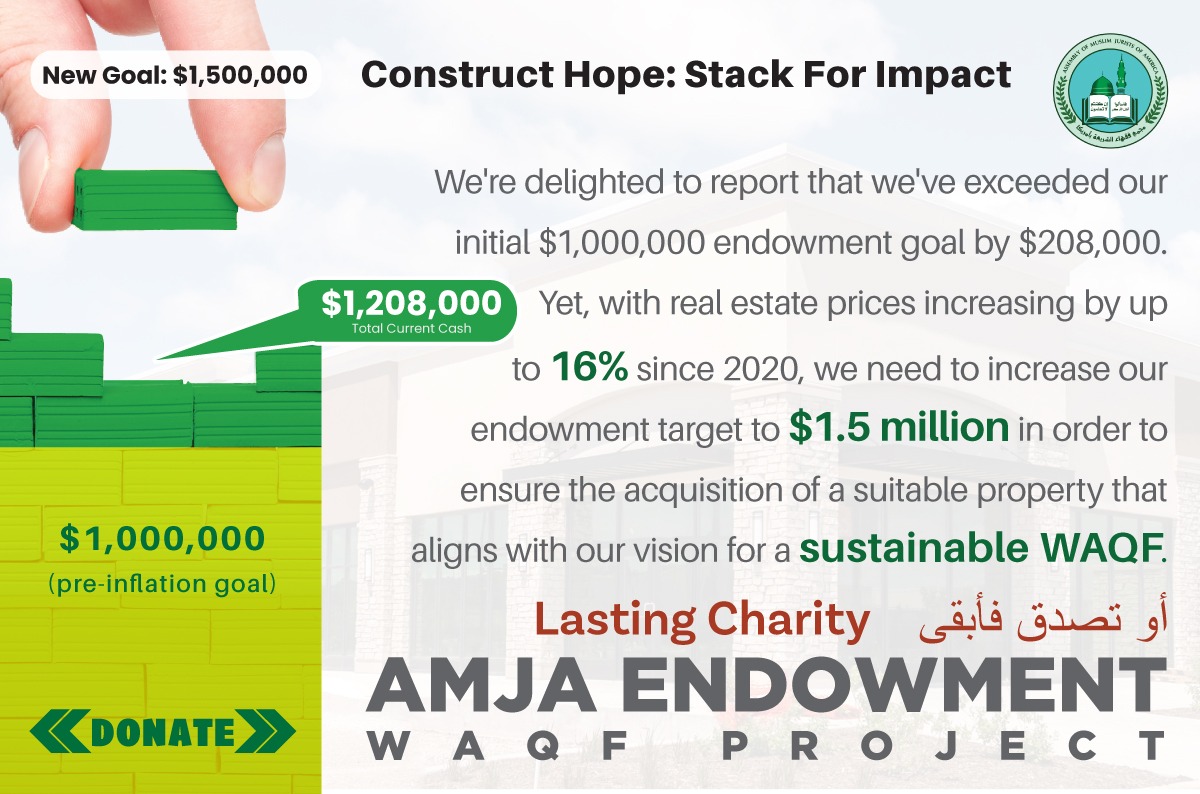The Permanent Fatwa Committee of AMJA (The Assembly of Muslim Jurists of America) has conducted an in-depth study on the issue of buying homes directly from the bank (foreclosure) as it occurs in the United States of America. Several members of the committee submitted working papers for discussion and mutual exchange of viewpoints, with deliberations continuing over the course of a number of sessions. The committee also consulted AMJA’s Higher Advisory Board due to the contemporary nature of this transaction and the frequency with which Muslims have been asking about it, especially after the recession currently being witnessed in the real estate market in the United States and the great number of Muslims expressing interest in permissible home-buying methods.
The members of the committee reached a total of three different conclusions concerning this transaction, the differences being based on the loan contract the bank provides to the client in order to conclude the sale and the extent of its validity: whether this contract is real, abiding by the rules of debt in Islamic Law (including the involvement of interest therein), or whether it is an illusory contract, which has no actual existence from an Islamic legal perspective, even if it is considered legal and binding from a de facto legal perspective.
Those committee members who concluded that the transaction is prohibited upheld the basic principle in that there is an unequivocal statement of an interest-bearing loan present as a condition of the sale.
Those who concluded that it is allowed upheld the main objective of the transaction, which is to sell the house, not to loan money. They placed a number of restrictions on that, however, stipulating that:
1) The bank must be the legal owner of the house,
2) The bank must bear full liability for the house,
3) A new interest-based loan contract must have been drawn up in conjunction with the contract of sale, as a result of re-sale,
4) The lender (the bank) must also be the seller,
5) No third party, financially independent of the bank, shall be involved in financing the deal,
6) The loan must be restricted to the purchase of the house in question,
7) The buyer must not possess freedom of disposal with regard to the loan,
8) The buyer must not take the loan [money] into his possession, and
9) The buyer must not bear liability for the loan;
Under these conditions, the transaction would be allowed.
There was also a third group who did not elect either of the two aforementioned opinions, preferring not to take a stand on this current issue, pending further study and contemplation.
The following are the names of each group:
I. Those who declared the transaction to be allowed according to the terms listed above:
1) Dr. Walid Al-Maneesi
2) Dr. Main Al-Qudah
II. Those who declared the transaction to be prohibited:
1) Dr. Muhammad Naeem Saei
2) Dr. Muwaffaq Al-Ghalayini
3) Dr. Hatim Al-Haj
III. Those who preferred not to take a stand:
1) Dr. Salah Al-Sawy
2) Dr. Walid Basyouni
Due to the difference of juristic opinion on the matter, as clarified above, the committee advises Muslims to search for other alternatives, in order to avoid an area of scholarly dispute and to be on the safe side religiously. It is certainly recommended to avoid matters of dispute among the scholars, for whoever avoids doubtful matters clears himself with regard to his religious duties and his honor. At the same time, whoever finds himself in dire need may follow the scholars who permit it; and Allah Almighty is the Most Exalted and He knows best.
Allah is the source of help and He is the One who guides to the path of truth and light.





